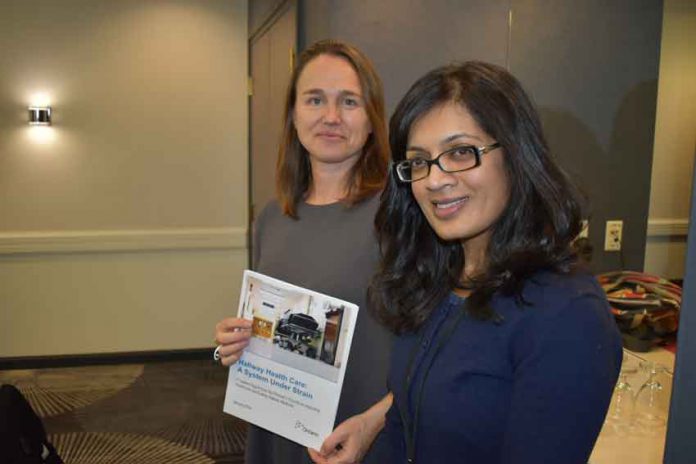
Meeting to Review Health Transformation in the North
by Jamie Monastyrski
Toronto, ON – INDIGENOUS – Members of the Keewatin Table – technical working group, responsible for providing input and recommendations to improve First Nation Health Care in the Treaty #3 region, met with representatives of the Premier’s Council on Improving Healthcare in Toronto on Monday.
The Premier’s Council on Improving Health Care and Ending Hallway Medicine was convened on October 3, 2018, for a three-year term to identify for the Premier of Ontario and the Minister of Health and Long-term care strategic priorities and actions that will lead to an overall improved health care system in the province.
“I believe that we are moving in the right direction in terms of providing valuable input and recommendations to the provincial and federal government from our experienced people sitting on the Keewatin Table,” said Dr. Alex Petiquan, who is a member of the Health Experts Advisory which provide guidance, expertise and support to the Keewatin Table. “However, as this is a knowledge sharing circle, we will also be taking their reports back to the committee for further analysis and future planning.”
One of the main issues discussed at the meeting included whether First Nations and particularly remote First Nations statistics were being addressed accurately in the report. Issues such as racism in the health care sector and the use of cultural practices were discussed as was the lack of infrastructure in First Nation communities and the importance of heli-pads for quicker access to health centres.

Grand Council Treaty #3 presented an update on the first phase of the GIS mapping system that tracks such data as proximity to nearest healthcare centres and long-term care homes, emergency wait times and other vital health services that will be accessed by users.
Regional Health organizations such as the Kenora Chiefs Advisory, Fort Frances Area Tribal Health Services, Waasegiizhig Nanaandawe’iyewigamig, Anishinaabeg of Kabapikotawangag Resource Council and Gizhewaadiziwin Health Access Centre presented updates from their regions that included such priorities as physician recruitment, primary care and community care initiatives.
Chief Tom Johnson of Seine River and a representative of the Rainy Lake Chiefs stressed the importance of having the province and the Premier’s Council visit the Treaty #3 territory to get more in-depth feedback from the citizens and healthcare workers.
Next steps for the Premier’s Council include engaging with key stakeholders on the findings of the first interim report including challenges and emerging themes to support the development of solutions in their second report.
You can view and provide feedback on the report at:
http://www.health.gov.on.ca/en/public/publications/premiers_council/report.aspx






